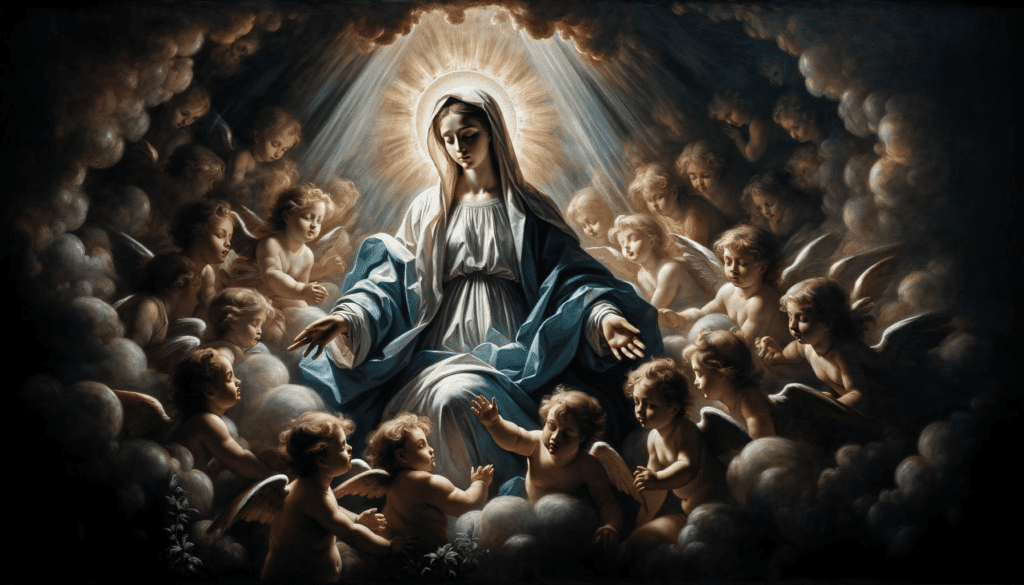
Mary, the most beautiful, pure and holy of creatures
Gen 3:13-15 and Luke 1:26-29
Dear confreres,
Mary is the new Eve. Filled with grace, she makes the inauguration of the new creation possible by crushing under her feet the serpent that deceived the first Eve.
On 8 December 1854, Pope Pius IX promulgated the dogma of the Immaculate Conception of the Virgin Mary as follows: “The Blessed Virgin Mary was, at the first moment of her conception, by a singular grace and favour of Almighty God, in view of the merits of Jesus Christ, preserved intact from all stain of original sin”. What exactly was he trying to tell us?
Historically speaking, we do not have a sinless human history. When we are born, we see that evil precedes us and we realise, whether we like it or not, that each of us ends up inaugurating a sinful history in our lives. There is no such thing as a sinless human life, with the exception of Mary and her Son. The Immaculate Conception of the Virgin Mary tells us that, from the moment of her conception, Mary was the object of a singular predilection on the part of God. In God’s eternal destiny, Mary was chosen to be the Mother of his Son made man. God willed that his Son, the Holy One par excellence, should have a dwelling worthy of him. He wanted the Mother of his Son, according to humanity, to be holy and immaculate. Mary’s Immaculate Conception was made possible thanks to her divine Maternity, and in anticipation of the merits of her Son.
The mystery of the Immaculate Conception of Mary reveals to us that in the primordial divine plan of creation, the human person had the purity and beauty of the Immaculate. When God created, everything was beautiful and good. Evil and sin were never creatures of God. Mary shows us God’s primordial destiny when he created us. A destiny that was unfortunately compromised by sin, as we have already said. From the moment of her conception, Mary was showered with graces. God came to dwell totally within her. Mary was not conceived without sin by virtue of her personal merits. She was a free gift from God to one of his creatures. Only God is capable of making one of his creatures holy and immaculate. It was therefore in anticipation, by virtue of the merits of her Son, that Mary was conceived Immaculate. It is thanks to her Son and for him that Mary is Immaculate. Just as the Son of God became man for us, so the Virgin Mary was preserved from all sin for us too. Through this mystery, Mary anticipates God’s salvation for each one of us. Through the mystery of her Immaculate Conception, Mary invites us to open ourselves to the action of the Holy Spirit, so that gradually, from now on, and in our final destiny, we too may be immaculate, free from evil. Mary’s holiness is an invitation to look with hope and compassion.
God has come to take away all our sins. Associated with Jesus’ victory over sin and death, Mary has full life. As Saint Paul says in his letter to the Ephesians, by his death Jesus gave us new life, free to be holy and blameless in his presence, in love (Eph 1:3-5). Holiness as becoming is our common vocation.
Faced with our experience of existential contradiction, Mary teaches us that Grace, that is, God’s gratuitous love for us, is stronger than sin. She reveals to us that God’s mercy is more powerful than evil. This mercy is capable of transforming evil into good. The evil we experience every day has its source in the human heart, a heart that is sick and incapable of healing itself. It was the shed blood of Jesus, born of the Virgin Mary, that became the source of reconciliation. With her immaculate heart, Mary, the new Eve, invites us to have absolute confidence in her Son.
Mary was certainly full of grace. We need to know that, through our baptism, we too are full of grace, because God comes to live in us as he did in Mary. Each of us has the possibility of gradually becoming holy and immaculate, but on condition that we welcome God who lives in us and allow ourselves to be transformed by him. The big question remains: how do we welcome God into our lives? We need the help and intercession of Mary, whose life of faith shows us the way to holiness. May she sustain our hope.
To say that Mary has enjoyed a unique privilege does not mean that she is no longer our sister or companion. On the contrary, she is very close to us. She was tempted like us, but she did not succumb, because she was always docile to the voice of the Spirit of her Son. Her love was total and unconditional. Her life was a total gift of love. She is our companion in faith.
Let us never lose sight of the fact that the Virgin Mary loves our Vincentian family very much. She manifested herself to one of our sisters, Catherine Labouré, to whom she revealed the mystery of her Immaculate Conception. She is truly the mother of the Vincentian family, for whom she has a special predilection, manifested through the apparitions to our sister Catherine Labouré.
Homily by Fr. Dominique Iyolo, CM

